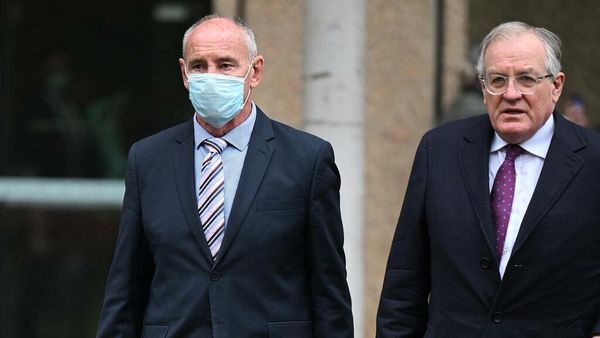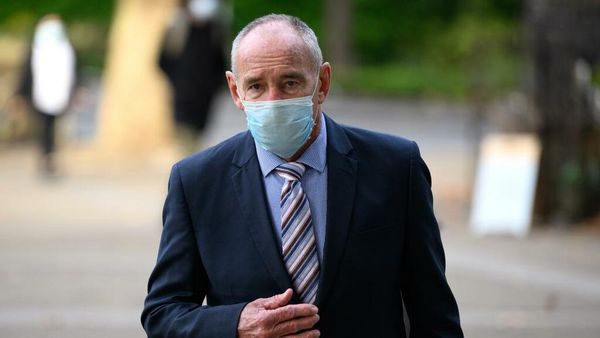
Investigative journalist Hedley Thomas has rejected allegations he influenced potential witnesses in Christopher Michael Dawson’s murder trial by discussing potential movies or miniseries about the case.
Returning to give evidence in the NSW Supreme Court on Tuesday, Thomas said talk of witnesses playing a role in an upcoming production was merely done as banter during interviews with them.
“When you held out those deals to them … you appreciated that that would be attractive to them?” asked Dawson’s barrister Pauline David.
“Possibly to some, but it might have been very unattractive to others who were introverted or didn’t want to be involved,” he said.
Thomas produced The Teacher’s Pet podcast on the January 1982 disappearance of Lynette Dawson.
He told the court that he had no roles to offer anyone, explaining that his interviews for the podcast occurred in the years before a deal had been struck with Blumhouse Television for a miniseries in September 2018.
Dawson, now 73, has been accused of murdering his wife and disposing of her body so he could have an unfettered relationship with his babysitter and former high school student, known as JC. He has pleaded not guilty.
Ms David suggested Thomas had corrupted and poisoned the recollections of potential witnesses by discussing his own negative perceptions of Dawson with them, before some had even given a statement to the police.
The Walkley award winning journalist denied these allegations.
“These were intelligent people with their own independent minds,” he told Justice Ian Harrison.
The podcast was released in May 2018, a few weeks after a brief of evidence was sent to the Department of Public Prosecutions in April. Dawson was charged and arrested in December that year.
In recorded conversations with interviewees, Thomas was heard saying Dawson had been suspended from his high school because he had sex with school girls. Ms David referred to this as an unfounded rumour, while Thomas said it had not been published in the podcast itself.
Thomas was also heard saying that in the upcoming miniseries, script writers could use poetic licence to portray Dawson as someone who was cruel to animals in his youth.
This was merely a hypothetical suggestion plucked out of thin air about what could be portrayed in a later miniseries, he told the court.
The journalist said he had offered multiple chances for Dawson to come on the podcast for a completely unedited interview.
When these opportunities were rejected, Thomas talked to an anonymous Queensland District Court judge and Ivan Milat’s former lawyer about any weaknesses in a murder case that could be brought against Dawson.
A statement from the judge was then given its own complete episode in the podcast, the court heard.
“You included it for balance?” Justice Harrison asked.
“Yes, Your Honour,” Thomas replied.
The trial continues.










